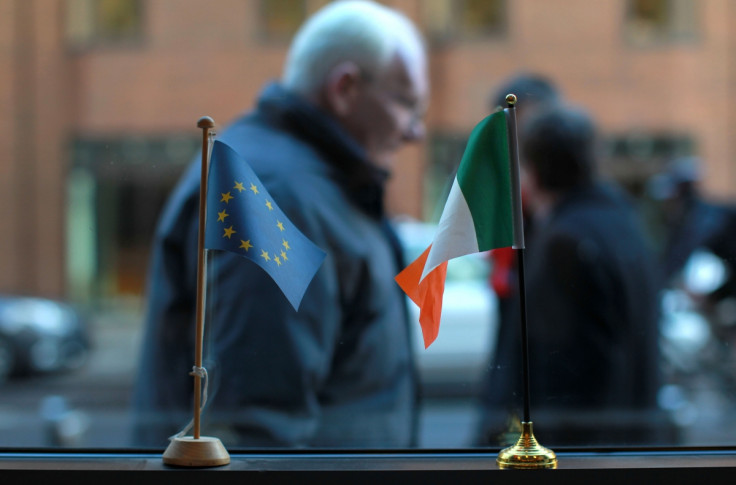EU referendum: Irish passport applications at three-year high following date of vote announcement

The number of UK citizens applying for Irish passports reached a three-year-high in the month the date of the EU referendum was announced. According to figures obtained by IBTimes UK, in February 2016 – when David Cameron confirmed the date of the EU referendum vote – a total 465 people born in England, Scotland or Wales applied for Irish passports, a figure greater than any other monthly number since January 2013.
The figure for February reflects a trend in the rise of the British citizens applying for their first Irish passport ahead of the 23 June vote. In 2014, the number of people born in mainland Britain applying for Irish passports rose from 3,755 in 2014 to 4,243 to 2015.
Ireland offers citizenship to anyone who has an Irish parent, no matter which country they were born in. People with an Irish grandparent can also apply for passports as long as their birth has been registered in the country's foreign births register.
There is also a rise in the figure for those applying for Irish passports who live in Northern Ireland. However, the application process is different as those applying from Northern Ireland have the same right to apply for Irish passports as anywhere else on the island.
The figures still show an increase in the number of adult first-time applications from 10,672 in 2014 to 12,159 in 2015.
The rise in applications has also affected the current processing times for passports at the Irish Embassy in London. On the passport section of its website, the embassy is advising for applicants to allow at least seven weeks for the passport to be processed from the date it is registered by, compared to the usual allowance of six weeks.
A spokesperson for Ireland's Department of Foreign Affairs (DFA), which deals with passport applications, told the IBTimes UK that it cannot "extrapolate and attribute" increases or decreases in applications, as it does not ask applicants their reasons for wanting Irish passports.
Fears of Brexit limiting 'freedom of movement'
However, there have already been those who have spoken out about the fears that a potential Brexit could have on the freedom of movement for them or their children.
Carrie Neal, of County Antrim in Northern Ireland, applied for her first Irish passport this year. She told the Irish Post: "I am proud to be both a British and Irish citizen, but another aspect of that pride is being part of the EU and I wish to continue to be that. If the UK does decide to leave the EU, I'm glad I can depend on my Irish citizenship to allow me to still be with the EU and have the freedoms associated with that."
Glen O'Hara, a professor of modern and contemporary history at Oxford Brookes University, told the Guardian: "I am a European Union citizen as things stand, I regard myself as a European and I don't see why anyone else has the right to drag me out of that. So I'm thinking of taking a relatively painless joint citizenship route to ensure that I can keep my EU identity and rights, whatever other UK citizens decide."
© Copyright IBTimes 2025. All rights reserved.






















